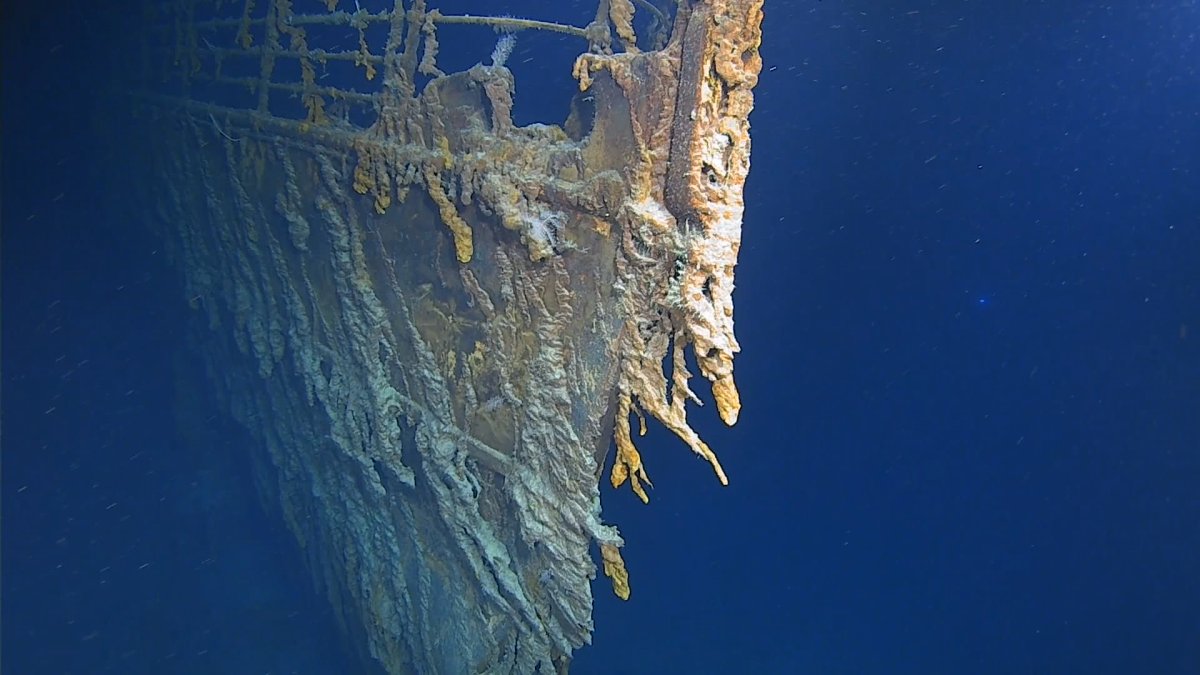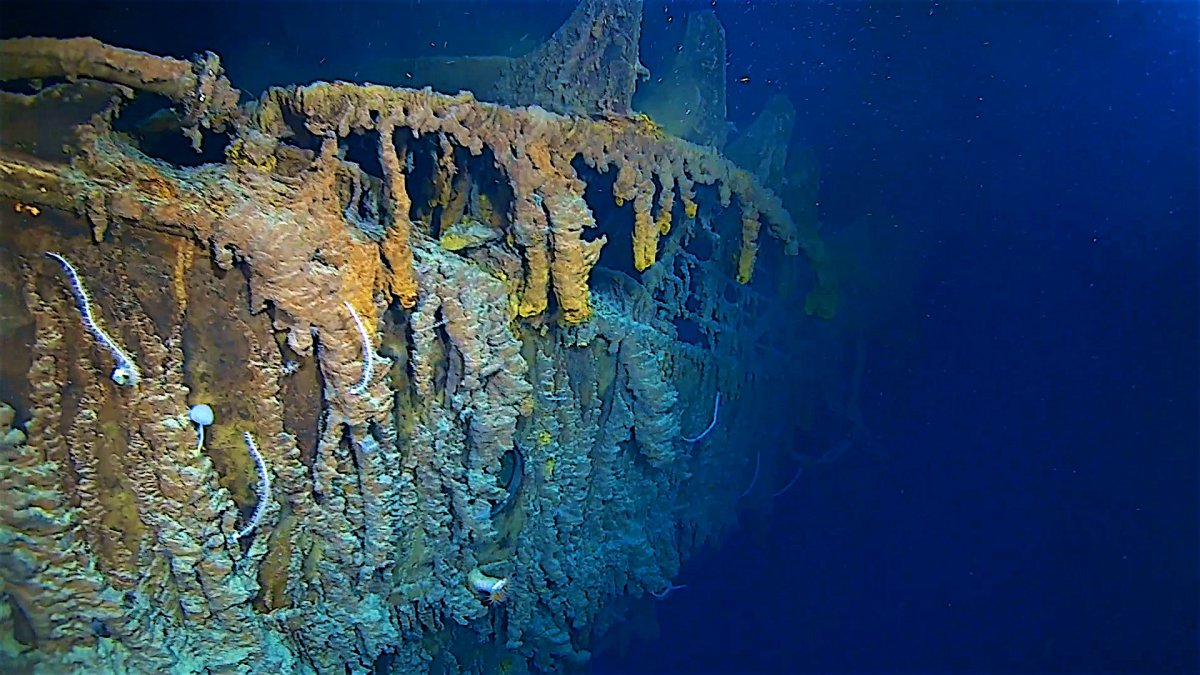The Titanic is slowly being eaten away by the sea, with large parts of the ill-fated ship now lost, divers have discovered.
In the first dive down to the shipwreck in 14 years, an international team has surveyed the site and found major changes taking place. "Titanic is returning to nature," Parks Stephenson, a Titanic historian who was part of the new expedition, told the BBC.
He said the level of degradation was "shocking," with some prominent features, such as the captain's bathtub, now gone. "That whole deck house on that side is collapsing, taking with it the state rooms. And that deterioration is going to continue advancing," he said in a statement.
The dives, which were undertaken as part of a new documentary by Atlantic Productions, surveyed the wreckage and looked at the life that has set up home there in the century since the ship sank. These include metal-eating microbes that are playing a big role in the decay.
"There are microbes on the shipwreck that are eating away the iron of the wreck itself, creating 'rusticle' structures, which is a much weaker form of the metal," Clare Fitzsimmons, a scientist on the expedition, told the BBC.

Other factors influencing the Titanic's decay include erosion from the saltwater and strong ocean currents.
The Titanic sits 12,500 feet beneath the surface of the North Atlantic Ocean. The exploration team was led by explorer Victor Vescovo, Stephenson and expedition leader Rob McCallum. They returned with is the first ever 4k footage of the Titanic, revealing the current condition of the ship.
"It's a big wreck, I wasn't quite prepared for how large it was," Vescovo said. "It was extraordinary to see it all, and the most amazing moment came when I was going along the side of the Titanic and the bright lights of the submersible reflected off a portal and came right back, it was like the ship was winking at me. It was amazing."
Ahead of the 100th anniversary of the sinking of the Titanic, the NOAA said the ship should be protected via 'in situ preservation' by being left alone, and the site "only accessed for educational, scientific or cultural interests." It said it expects the hull and structure of the ship will collapse in the next 50 years.

However, reports have since emerged that a newly discovered bacteria is eating away at the ship. In 2018, the BBC reported that the bacteria Halomonas titanicae could mean the ship disappears within just a few decades.
The Titanic sank in 1912 after hitting an iceberg in the Atlantic Ocean. The 882 foot, 52,310 ton ship took just two hours and forty minutes to sink, killing over 1,500 people on board. It now sits at the bottom of the ocean, about 400 miles south of Newfoundland.
Robert Blyth, from the National Maritime Museum, U.K., told the BBC it was important to document the ship before it disappears. "All of the survivors have now passed away, so I think it's important to use the wreck whilst the wreck still has something to say," he said.
Lori Johnson, a scientist on the expedition, said in a statement: "The future of the wreck is going to continue to deteriorate over time, it's a natural process. These are natural types of bacteria, so the reason that the deterioration process ends up being quite a bit faster, is a group of bacteria, a community working symbiotically to eat, if you will the Iron and the sulphur."
Uncommon Knowledge
Newsweek is committed to challenging conventional wisdom and finding connections in the search for common ground.
Newsweek is committed to challenging conventional wisdom and finding connections in the search for common ground.
About the writer
Hannah Osborne is Nesweek's Science Editor, based in London, UK. Hannah joined Newsweek in 2017 from IBTimes UK. She is ... Read more
To read how Newsweek uses AI as a newsroom tool, Click here.








